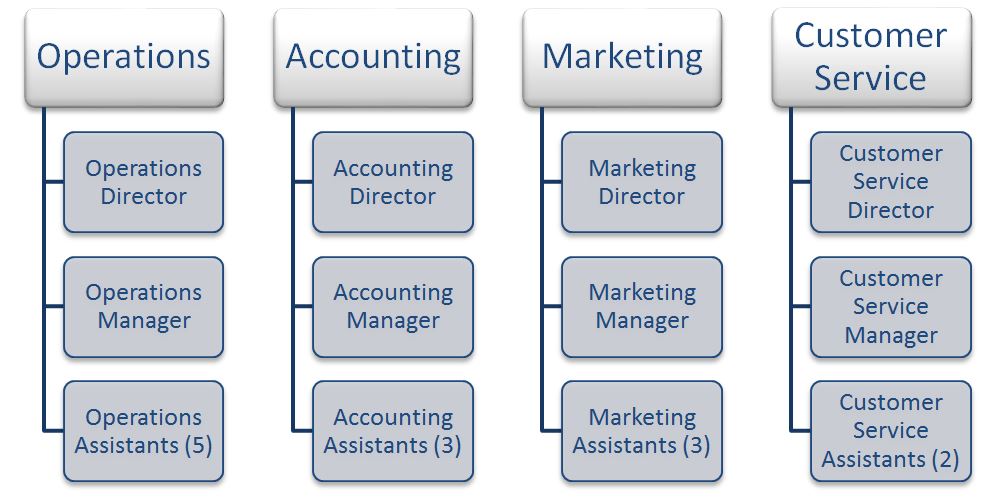Management must create favourable conditions for the enterprise’s success rather than passively respond to market changes. The enterprise’s activity should bring such a profit, allowing it to accumulate funds to eliminate possible risks in the future. Nevertheless, it is necessary to proceed from the fact that the tasks of the enterprise are determined by the consumer, not by the producer (Brunsson, 2018). Thus, managing a modern enterprise is a complex process one person cannot provide. As production expands, the number of personnel grows, and the structure of the enterprise itself changes. It leads to a division and redistribution of functions in management. Consequently, the management of car service enterprises can be carried out according to various schemes. The superior managers can perform their duties only on the condition that they transfer some of their powers to other managers (Kondalkar, 2020). This concept is the basis of the organizational structure of I-RIDE.
I-RIDE is a new company division that provides transportation services in a particular metropolitan area. It is a relatively unique concept, the successful operation of which depends on the literacy of the employees (Lewis, 2019). Therefore, it is recommended to create four structural departments within the division, which will be engaged in transportation services in a particular metropolitan area. Thus, I-RIDE will have four units: Operations, Accounting, Customer Service and Marketing.
The operations department will have seven employees whose primary responsibilities will be to service the day-to-day operations of the unit. This department requires the most staff, as it involves vehicle maintenance, dispatching, and scheduling. To make the department’s activity coordinated and all responsibilities performed, it should be headed by the director, who is responsible for quality control and the timely performance of tasks and their proper formulation. The department will likewise have an operations manager who will interact with employees and coordinate their work. The remaining five employees will have positions as Operations Assistants, and they will be the ones who will perform the upcoming tasks for the department. These employees will ensure that I-Ride vehicles are always in appropriate working order. Therefore, they should be experienced in performing regular maintenance and other repairs.
The sales and marketing department will be responsible for advertising the new service, increasing customer demand for the I-RIDE unit and promoting the brand in the marketplace. It will be headed by a sales and marketing director, who a manager and three specialists will assist. The next step will be to recruit a group of people to work in the customer support department. Feedback helps identify the company’s weaknesses and strengths, and specialists in this department will be responsible for communicating with customers and answering any questions or concerns they may have. They should have strong communication skills and be able to maturely and responsibly handle customer complaints and suggest improvements to the company.
Moreover, a team of financial industry experts should be hired to work in this department to increase the probability that it will be profitable in the coming years. It will guarantee that the division will be successful and will be able to withstand competition in the marketplace. An organizational chart for the I-Ride division will be attached to this proposal. This chart gives an idea of the jobs to be planned and the hierarchy of authority. With this hiring strategy, the newly formed I-Ride division will have an easier time creating, promoting, selling, and successfully providing after-sales support for cars.

References
Brunsson, N., & Olsen, J. P. (2018). The Reforming Organization. Routledge.
Lewis, L. (2019). Organizational change. Routledge.
Kondalkar, V. G. (2020). Organizational behaviour. New Age.